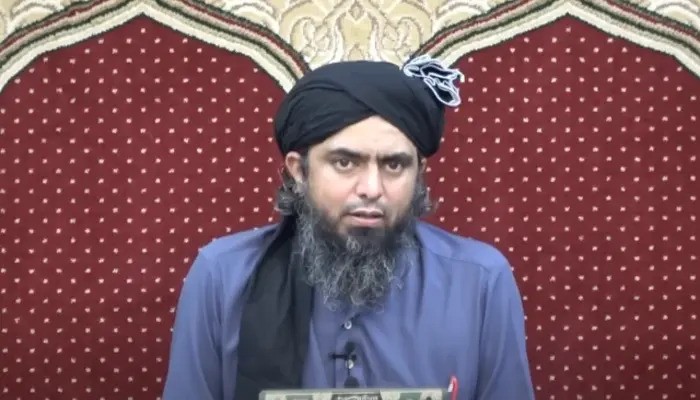Engr Muhammad Ali Mirza Sent on 7-Day FIA Remand

Muhammad Ali Mirza blasphemy case has once again gripped national attention as a Rawalpindi court sent the controversial religious scholar on a seven-day physical remand. The Federal Investigation Agency (FIA) now holds custody and has been ordered to complete interrogation before presenting him again on September 19.
Court Extends FIA Custody
On Friday, Senior Civil Judge Waqar Hussain Gondal granted FIA’s request for a physical remand of Engr Muhammad Ali Mirza. He was produced in Rawalpindi district courts under strict security arrangements. The judge directed FIA investigators to complete questioning during this period and return him to court on the given date.
Following the order, FIA officials escorted Mirza out of the courtroom to continue their investigation. His case has sparked heated debate both online and in legal circles.
Background of Detention
Mirza’s arrest began weeks earlier when Jhelum police detained him under Section 3 of the Maintenance of Public Order (MPO). He was later transferred to jail before being handed over to FIA officials once a formal blasphemy case was registered.
Authorities confirmed that his Qur’an-o-Sunnat Research Academy in Jhelum has been sealed. However, no official explanation has been provided for the closure.
FIR and Allegations
The First Information Report (FIR) was filed at Jhelum City Police Station. It alleges that a video clip circulating on social media, originally posted on Mirza’s YouTube channel, contained blasphemous remarks.
According to the complainant, Mirza misinterpreted verses from Surah al-Nisa and made statements considered offensive to the Holy Prophet Muhammad (Peace Be Upon Him). The complaint further asserts that the video violated Pakistan’s strict blasphemy laws.
Charges Under PPC and PECA
The FIR includes charges under Section 295-C of the Pakistan Penal Code (PPC). This section states that anyone who directly or indirectly defiles the name of the Prophet (PBUH) shall face the death penalty and a possible fine.
In addition, Section 11 of the Prevention of Electronic Crimes Act (PECA) 2016 has been applied. It covers preparation or distribution of material that incites sectarian, racial, or interfaith hatred. Violations can lead to imprisonment of up to seven years along with financial penalties.
Mirza’s Public Profile
Engr Muhammad Ali Mirza is well known for his online religious lectures. His YouTube channel has over three million subscribers, and he has cultivated a large following among young audiences seeking religious discourse. His critics, however, accuse him of making controversial remarks against mainstream clerics and traditional interpretations.
The sealing of his academy in Jhelum has added to tensions, with supporters questioning whether the move was meant to silence his teachings.
Read: Super Mario Galaxy Movie Announced as Sequel
Previous Legal Battles
This is not the first time Mirza has faced such charges. In May 2020, he was accused of making derogatory comments against prominent scholars. At that time, he was released on bail after public demonstrations from supporters and growing social media attention.
In 2023, he again faced allegations of blasphemy after remarks linked to the Prophet (PBUH) and his perceived stance on the Ahmadi community. Those charges, however, were later dropped.
Despite recurring cases, Mirza has continued his online activities and maintained his stance that his lectures promote unity and authentic interpretation of the Qur’an and Sunnah.
Human Rights Concerns
The Muhammad Ali Mirza blasphemy case underscores the broader debate surrounding Pakistan’s blasphemy laws. Human rights organizations have long warned that such laws are vulnerable to misuse. They argue that accusations are often motivated by personal, sectarian, or political disputes rather than genuine religious concerns.
Rights groups regularly call on the government to ensure due process and safeguard against mob justice, which has in the past resulted in extrajudicial violence against accused individuals.
Political and Social Reactions
The remand of Mirza has generated strong reactions. Supporters claim the charges are part of a campaign to silence independent voices within religious debate. They argue that his reinterpretations, while controversial, are based on scholarship and not intended as disrespect.
Critics, however, insist that his videos cross dangerous lines and spread division. They have urged authorities to enforce strict punishment under the law.
Social media remains deeply divided, with hashtags supporting both Mirza and his prosecution trending in Pakistan.
What Lies Ahead
As FIA continues its investigation, Mirza will remain in physical custody for at least seven days. The agency is expected to question him regarding the video content, his intent, and the circulation of his lectures online.
The court has scheduled September 19 for his next appearance. Whether charges will proceed to trial, or if he will be granted bail as in previous cases, remains to be seen.
The outcome of the Muhammad Ali Mirza blasphemy case may set a precedent for how digital religious content is scrutinized under Pakistan’s laws. It will also test the balance between free expression in religious scholarship and strict enforcement of blasphemy legislation.
Follow us on Instagram, YouTube, Facebook,, X and TikTok for latest updates
